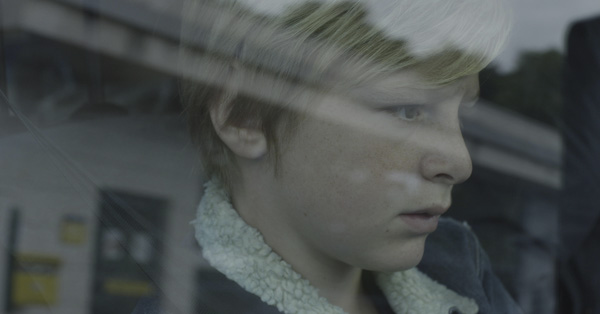![]() Films have explored domestic violence before, but it’s likely that Xavier Legrand’s debut feature is among the most powerful. Ratcheting up tension into a chokehold of terror, the movie reveals the devastating effect of cruelty on often overlooked victims of abuse, children.
Films have explored domestic violence before, but it’s likely that Xavier Legrand’s debut feature is among the most powerful. Ratcheting up tension into a chokehold of terror, the movie reveals the devastating effect of cruelty on often overlooked victims of abuse, children.
Custody begins coolly enough. A curt female judge presides over a custody dispute between an estranged couple. Nervous Miriam (Léa Drucker) has brought a complaint of physical abuse against her hulking husband, Antoine (Denis Ménochet), but she can’t provide proof. A written statement from her son, Julien, is heard, a request that his father stay away. The parents are accompanied by their female lawyers, one ladylike and calm, the other aggressive and hectoring. Even-handed, simple yet sophisticated, the scene unfolds unhurriedly in real time. It ends with the judge granting the father joint custody of his son. Antoine’s sullen demeanor arouses some discomfort, but his request seems reasonable. The drama seems about to proceed on neutral ground.
Instead, the film heads into intense emotional discomfort. Ordered to steer clear of Miriam, Antoine is dead-set on finding out where she now lives. He’s determined to squeeze her whereabouts from Julien, only the child is scared from the moment he’s strapped helplessly into his father’s car. Actor Thomas Gioria, frail and sweet-faced, lets us feel the boy’s fear, misery, and increasing resentment as Antoine threatens and bullies Julien. Their scenes together arouse real dread, and a breakout confrontation where Julien tries to flee his father quickens the film’s pace and goes beyond dread into sheer panic.
From this point on, we know that the film is bound for a dark place. A gun appears—it will be used. A party is planned to celebrate a special occasion—the event will not be joyous. Meanwhile, Antoine will amp up his harassment and threats into what he intends as a final reckoning. Manipulation and arrogance light his way, because, as we see little by little, Antoine views his wife and child as his property. Thus Legrand offers a critique of male blindness and hubris in a quiet, nondoctrinaire fashion. Although it makes a strong statement, the film’s characters always feel real and specific.
Custody takes some turns into a backstory that may not be necessary, and a few of its interludes play on too long, but it narrows down to a terrible denouement with a single-minded focus. Committed performances, a controlled march of escalating dread, and an unsparing view of the damage vindictiveness can do give this film the pulse of life and death. Go and see it, but be warned. It could be overpowering.

















Leave A Comment